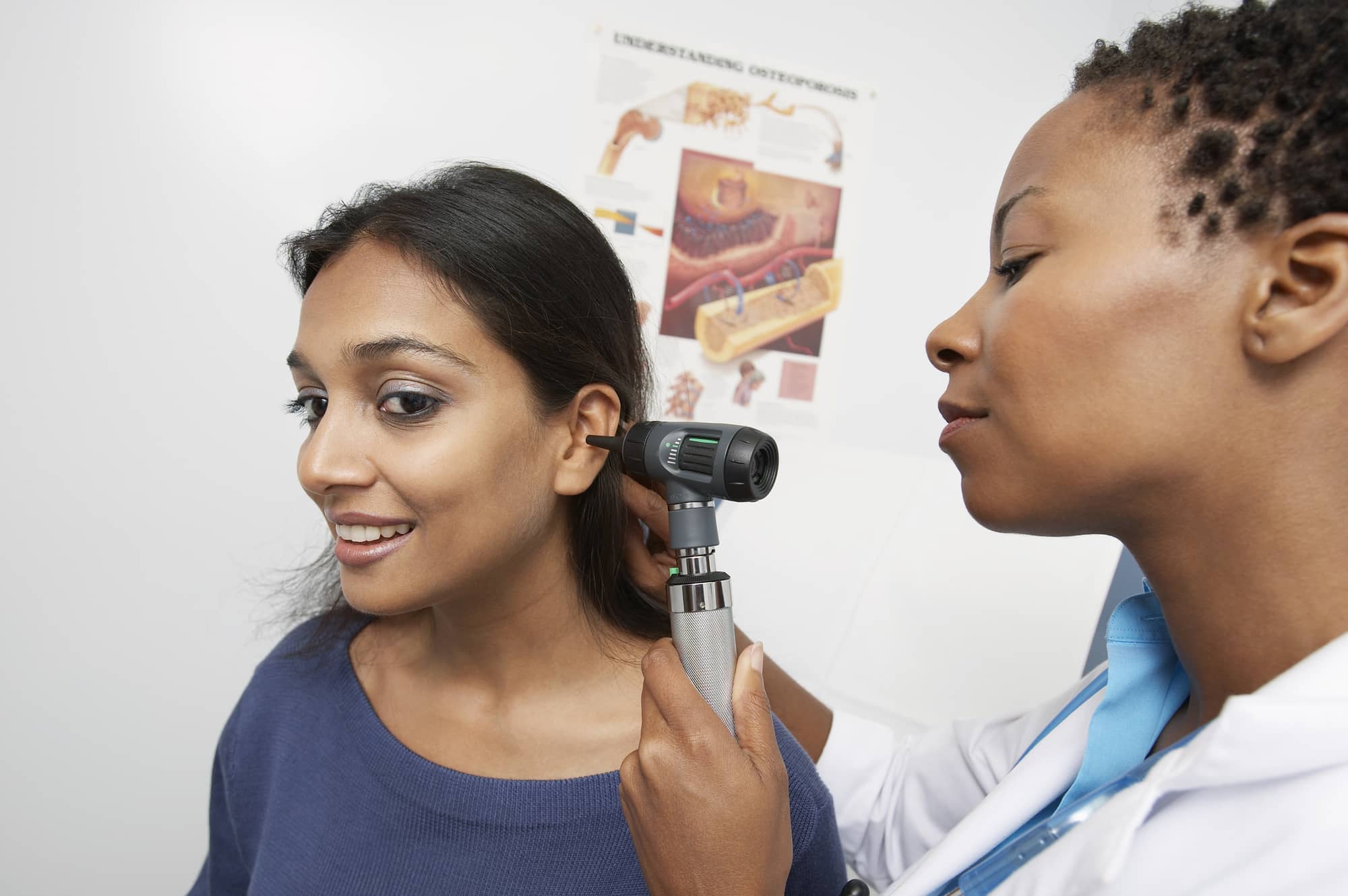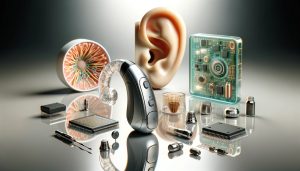Bachelor’s Degree in Communication Sciences and Disorders
The educational journey towards becoming an audiologist begins with a Bachelor’s degree in Communication Sciences and Disorders. This undergraduate program lays the foundation for students to develop a comprehensive understanding of the field and the necessary skills for further specialization.
During the Bachelor’s degree program, students will acquire knowledge in various areas related to communication disorders. They will study subjects such as anatomy and physiology of the auditory system, speech and language development, neurology, and psychology. These courses provide a strong scientific background and help students grasp the complexities of human communication.
In addition to theoretical knowledge, students will also gain practical experience through hands-on training. They may have the opportunity to work in clinical settings, assisting licensed audiologists in conducting evaluations and providing intervention to individuals with hearing impairments. This hands-on experience allows students to apply their knowledge in real-world scenarios, developing their clinical skills and understanding of the profession.
Furthermore, many Bachelor’s degree programs in Communication Sciences and Disorders also incorporate coursework in related areas such as linguistics, sign language, and assistive technology. This broadens the students’ perspective and prepares them for the diverse needs of their future patients.
Completing a Bachelor’s degree in Communication Sciences and Disorders typically takes around four years of full-time study. However, the actual duration may vary depending on the institution and the student’s course load. It is important to note that a Bachelor’s degree alone does not qualify an individual to practice as an audiologist. Further education is required to obtain the necessary licensing and expertise.
Overall, a Bachelor’s degree in Communication Sciences and Disorders serves as the initial stepping stone towards a rewarding career in audiology. It equips students with a solid understanding of the field and prepares them for advanced studies in audiology or related disciplines.
Master’s Degree in Audiology
After completing a Bachelor’s degree in Communication Sciences and Disorders, aspiring audiologists must pursue a Master’s degree in Audiology to gain further specialization and expertise in the field. The Master’s degree program focuses on advanced knowledge and clinical skills necessary for diagnosing and treating individuals with hearing and balance disorders.
During the Master’s degree program, students delve deeper into a wide range of audiology-specific subjects. They study advanced topics such as audiology assessment techniques, rehabilitation strategies, and the latest advancements in hearing aid technology. These courses provide comprehensive knowledge and understanding of the intricacies of audiology practice.
In addition to the theoretical component, Master’s programs in Audiology also emphasize clinical training. Students typically complete clinical rotations in various healthcare settings, including hospitals, audiology clinics, and rehabilitation centers. Under the supervision of experienced audiologists, students gain practical hands-on experience in conducting diagnostic evaluations, counseling patients, and fitting and adjusting hearing aids.
Moreover, Master’s degree programs often offer opportunities for research, allowing students to contribute to the advancement of audiology knowledge. This may involve conducting research studies, analyzing data, and presenting findings at conferences or in academic publications. Research experience not only enhances critical thinking and analytical skills but also fosters a deeper understanding of evidence-based practice in audiology.
The duration of a Master’s degree in Audiology typically ranges from two to three years, depending on the program and whether it includes a thesis or comprehensive exam requirement. Upon completion of the program, graduates are eligible to apply for a license to practice audiology in their respective jurisdiction. They can work in a variety of settings, such as hospitals, private practices, schools, or research institutions.
Attaining a Master’s degree in Audiology is a significant milestone for aspiring audiologists, as it equips them with the knowledge, skills, and clinical experience necessary to provide competent audiological care. It serves as the bridge between the foundational knowledge gained during the Bachelor’s degree and the advanced expertise required for independent practice as a licensed audiologist.
Doctor of Audiology (Au.D.) Degree
The Doctor of Audiology (Au.D.) degree is the highest level of education in the field of audiology. It is a professional doctoral degree that prepares audiologists for leadership roles in clinical practice, research, and education. The Au.D. degree is considered the standard for entry into the audiology profession in many countries.
The Au.D. program builds upon the foundational knowledge acquired during the Bachelor’s and Master’s degrees. It offers advanced coursework and clinical training to develop highly specialized skills and expertise in the diagnosis, treatment, and management of hearing and balance disorders.
The curriculum of an Au.D. program covers a wide range of specialized topics, including advanced audiologic assessment, amplification devices and technology, vestibular and balance disorders, auditory rehabilitation, and pediatric audiology. Students also learn about emerging research and technological advancements in the field that contribute to evidence-based practice.
One of the distinguishing features of the Au.D. program is an extensive clinical practicum. Students gain practical experience in diverse settings, working with patients of all ages and with various types of hearing conditions. This allows them to refine their diagnostic skills, improve their counseling abilities, and develop a deep understanding of the clinical implications of audiological findings.
A significant component of the Au.D. program is the completion of a doctoral capstone project or a clinical externship. These experiences provide opportunities for students to apply their knowledge and skills in real-world settings, under the supervision of experienced audiologists. The capstone project or externship allows students to integrate theory and practice while contributing to the advancement of audiology knowledge and patient care.
The duration of an Au.D. program typically ranges from three to four years, depending on the institution and the student’s enrollment status. Upon completion, graduates are eligible for licensure and can pursue a wide range of career paths, including clinical practice, research, academia, and leadership positions in healthcare organizations.
The Au.D. degree represents the pinnacle of audiology education, preparing audiologists to provide comprehensive and advanced audiological care to individuals of all ages. It equips them with the knowledge, skills, and clinical expertise necessary to address complex hearing and balance disorders and make a significant impact in the lives of their patients.
Additional Certification and Specializations
While a Doctor of Audiology (Au.D.) degree provides a solid foundation for a career in audiology, many audiologists choose to pursue additional certifications and specializations to further expand their knowledge and expertise in specific areas of the field.
One common certification that audiologists may pursue is the Certificate of Clinical Competence in Audiology (CCC-A) offered by the American Speech-Language-Hearing Association (ASHA). This certification signifies that an audiologist has met rigorous professional standards and possesses the necessary skills to provide high-quality audiological services. Obtaining the CCC-A may be a requirement in some employment settings or for licensure in certain states.
Specializations within audiology are another way for audiologists to enhance their skill set and cater to the unique needs of specific populations or aspects of audiology practice. Some popular specializations include pediatric audiology, geriatric audiology, tinnitus management, cochlear implant rehabilitation, and vestibular assessment and rehabilitation.
To specialize in a particular area, audiologists may pursue continuing education courses, attend specialized workshops and conferences, or enroll in postgraduate certificate programs. These educational opportunities provide audiologists with advanced knowledge and clinical skills specific to their desired specialization.
Obtaining certifications and specializations not only demonstrates audiologists’ commitment to professional development but also allows them to offer comprehensive and specialized care to their patients. It enables audiologists to stay updated with the latest research, technologies, and treatment approaches in their chosen areas of expertise.
Moreover, pursuing additional certifications and specializations provides audiologists with a competitive edge in the job market. It may open doors to specialized roles in healthcare institutions, research opportunities, teaching positions, or private practice.
It’s important to note that each certification and specialization may have its own requirements and application processes, and the availability of these opportunities may vary depending on the country or region. Audiologists are encouraged to research and explore the available options to determine which certifications or specializations align with their career goals and interests.
By pursuing additional certifications and specializations, audiologists demonstrate their commitment to lifelong learning and their dedication to providing the best possible care to their patients. It allows them to continually expand their knowledge and expertise, keeping pace with the ever-evolving field of audiology.
Continuing Education and Professional Development
In the field of audiology, staying updated with the latest advancements, research, and best practices is crucial to providing the highest quality of care to patients. Thus, continuing education and professional development are essential for audiologists throughout their careers.
Continuing education opportunities in audiology encompass a wide range of activities, including attending conferences, workshops, and seminars, as well as participating in online courses and webinars. These activities allow audiologists to stay informed about the latest research findings, technological advancements, and evidence-based practices in audiology.
Many professional organizations, such as the American Academy of Audiology (AAA) and the American Speech-Language-Hearing Association (ASHA), offer continuing education opportunities for audiologists. These organizations provide access to a vast array of resources, including journals, publications, and online learning platforms, that help audiologists stay current with the latest developments in the field.
Moreover, audiologists may choose to pursue advanced certifications or specializations as a form of continuing education. This allows them to deepen their knowledge and expand their skill set in specific areas of audiology, such as vestibular assessment and rehabilitation, auditory processing disorders, or cochlear implants.
Engaging in professional development activities goes beyond simply meeting the requirements for continuing education. It involves audiologists taking an active role in their career growth by seeking out opportunities for skill enhancement, staying informed about emerging trends and research, and fostering professional connections.
In addition to enhancing knowledge, continuing education and professional development also contribute to the development of critical thinking, problem-solving, and communication skills. These skills are essential for audiologists to provide evidence-based and patient-centered care.
Furthermore, maintaining an attitude of continuous learning and professional development helps audiologists adapt to the ever-evolving field of audiology. It allows them to embrace new technologies, treatment modalities, and assessment techniques, which ultimately benefits their patients.
Continuing education and professional development are not only beneficial for individual audiologists but also for the field of audiology as a whole. The collective efforts of audiologists to stay updated and continuously improve their skills contribute to advancing the field and improving the standard of audiological care worldwide.


